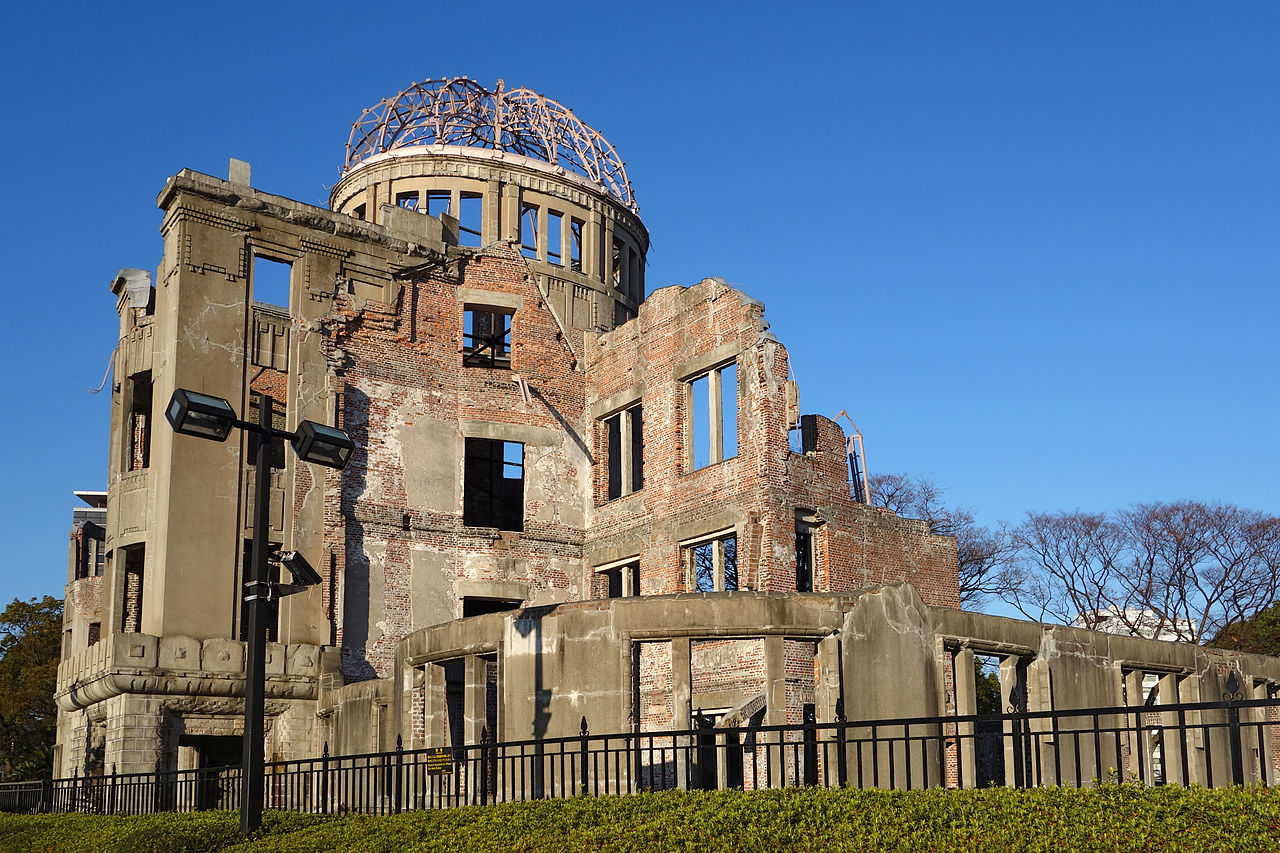
Memories From the Hiroshima Peace Memorial
News & Politics October 1, 2015By Justin van den Heuvel
August 6, 2015 – Hiroshima, Japan, hundreds of citizens gathered around the Hiroshima Peace Memorial. During the blistering summer day, they prayed in silence around the Atomic Bomb Dome (Genbaku Dōmu) to honor the thousands of people that perished the same day seventy years ago.
During the final moments of World War II, atomic bomb Little Boy was dropped over Hiroshima at 8:15AM under the order of President Harry Truman. Three days later, a second bomb named Fat Man detonated over Nagasaki after Japan’s leaders ignored a warning from the U.S. President. When both atomic bombs were dropped over Hiroshima and Nagasaki, over 120,000 people were instantly killed. Another 100,000-plus died from deadly radiation. All together, 300,000 people, most of them civilians, lost their lives. It was not until August 15, 1945, that Emperor Hirohito finally surrendered, signaling the end of one of the bloodiest conflicts in history.
The story did not end there. The conclusion of World War II only sparked a new age in warfare and politics. For over fifty years, powerful nations constantly battled and raced behind iron curtains to see who could build the most powerful nuclear weapons in sheer numbers. Since the end of the Cold War, there has been debates between governments discussing the future of nuclear warfare, and the atomic bombings of Hiroshima and Nagasaki are no exceptions.
“Seventy years later, we do not and can not know,” Gwen Boucher from Portland, Oregon, said. “Hopefully, the world knows these weapons can not be used again.” When World War II finally came to an end, a new string of events unfolded within society and governments. Arguments erupted immediately; two sides defended and criticized whether or not President Harry Truman made a wise decision to drop the atomic bombs on Hiroshima and Nagasaki. Reports claimed that Truman wanted to avoid a full-scale invasion of Japan, which could cost more lives on both sides. The President believed the atomic bombs were “merely another powerful weapon in the arsenal of righteousness.” Many agreed with Truman’s decision; most supporters were high-ranking generals, scientists and physicists. “I have no regrets,” Doctor Leona Libby, a scientist who participated in the Manhattan Project, stated. “I think we did right, and we couldn’t have done it differently. In wartime, it was a desperate time… When you are in a war to the death, I don’t think you stand around and ask, “Is it right?”
Unfortunately, other people have different views on the matter of nuclear war. “What a horrid situation it was to justify the bombs’ use in human suffering, choosing the lesser of two horrible options,” Sam Novartes from Matamoras, Pennsylvania, addressed in a paper. Many activists accused the President of being a war criminal for dropping the bombs. They argued that during the final events of World War II, Japan was making preparations for surrender when Hiroshima and Nagasaki were hit. They stated it was the United States’ desire to show off their military might, particularly towards the Soviet Union, that prompted the bombing.
During the Hiroshima ceremony, the debate to decide the future of nuclear weapons was once again revived within political halls. Kazumi Matsui, current mayor of Hiroshima, stood by thousands of participants and representatives from other nations, declaring nuclear weapons should be abolished, as they are “the absolute evil and ultimate inhumanity.” As nighttime fell over Hiroshima, the ceremony concluded with thousands of citizens placing hundreds of floating lanterns around the Hiroshima Peace Memorial. A young boy was interviewed and said, “I drifted the lantern praying that the world will forever be peaceful as it is now.” Shinzo Abe, Japan’s Prime Minister, once again pledged to cleanse the world of nuclear weapons, followed by expanding Japan’s restricted military since World War II.
The arguments will continue, and there is no correct statement whether or not President Truman made a wise decision to drop the atom bombs. The few survivors of Hiroshima share their stories with the world, and ask people to remember.
Header photo courtesy of wikipedia.





